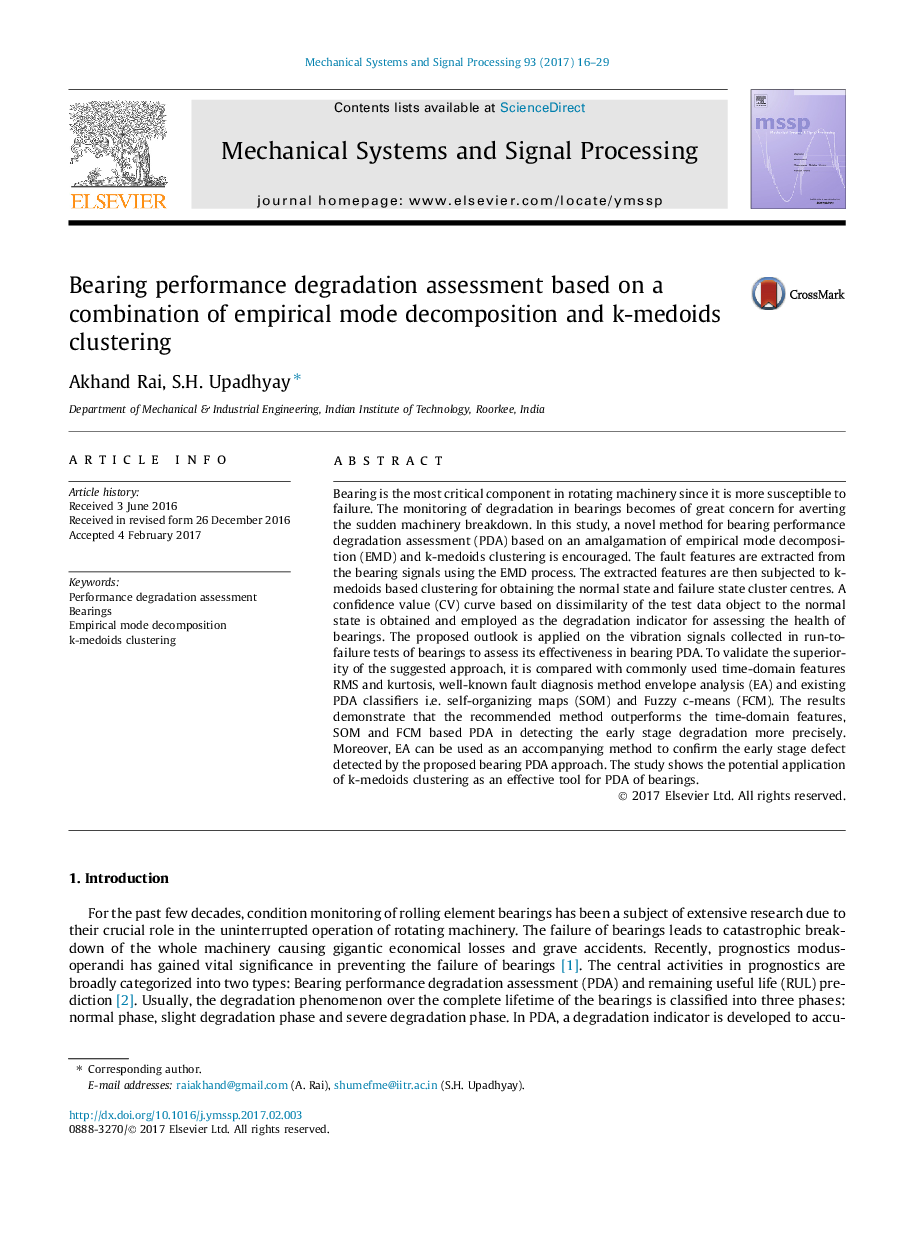| Article ID | Journal | Published Year | Pages | File Type |
|---|---|---|---|---|
| 4976958 | Mechanical Systems and Signal Processing | 2017 | 14 Pages |
Abstract
Bearing is the most critical component in rotating machinery since it is more susceptible to failure. The monitoring of degradation in bearings becomes of great concern for averting the sudden machinery breakdown. In this study, a novel method for bearing performance degradation assessment (PDA) based on an amalgamation of empirical mode decomposition (EMD) and k-medoids clustering is encouraged. The fault features are extracted from the bearing signals using the EMD process. The extracted features are then subjected to k-medoids based clustering for obtaining the normal state and failure state cluster centres. A confidence value (CV) curve based on dissimilarity of the test data object to the normal state is obtained and employed as the degradation indicator for assessing the health of bearings. The proposed outlook is applied on the vibration signals collected in run-to-failure tests of bearings to assess its effectiveness in bearing PDA. To validate the superiority of the suggested approach, it is compared with commonly used time-domain features RMS and kurtosis, well-known fault diagnosis method envelope analysis (EA) and existing PDA classifiers i.e. self-organizing maps (SOM) and Fuzzy c-means (FCM). The results demonstrate that the recommended method outperforms the time-domain features, SOM and FCM based PDA in detecting the early stage degradation more precisely. Moreover, EA can be used as an accompanying method to confirm the early stage defect detected by the proposed bearing PDA approach. The study shows the potential application of k-medoids clustering as an effective tool for PDA of bearings.
Related Topics
Physical Sciences and Engineering
Computer Science
Signal Processing
Authors
Akhand Rai, S.H. Upadhyay,
